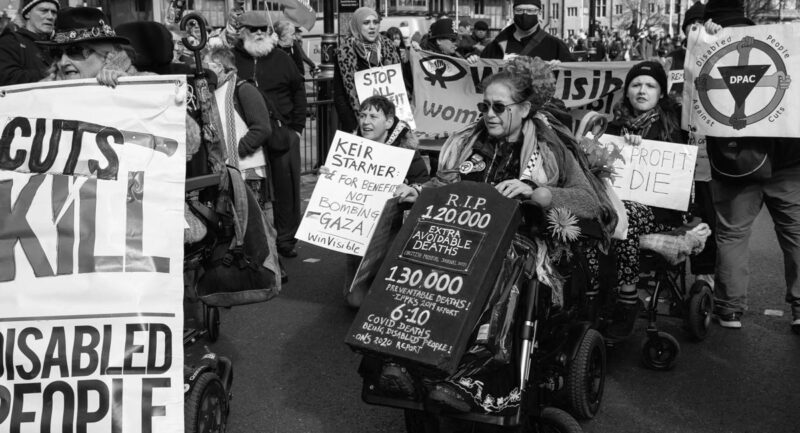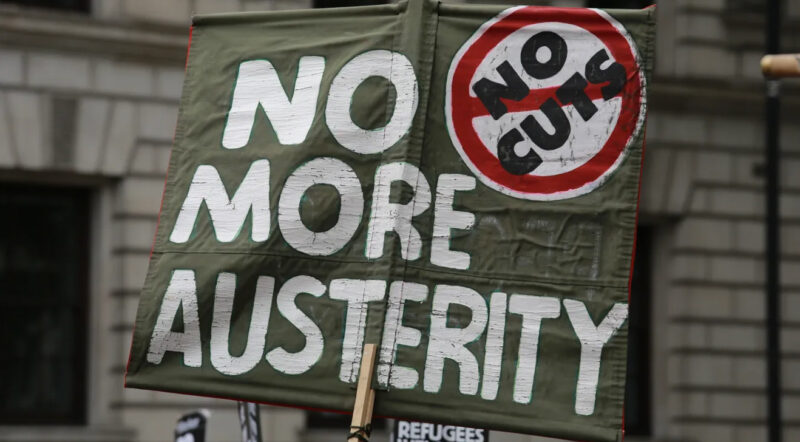All out for 30 June!
THE FIGHT against the cuts is taking a big step forward on 30 June, with a string of unions now pledging to shut the country down in a mass public sector strike, writes Jeremy Drinkall
 The PCS, UCU and NUT have been planning action for a while now, and the Unite union national health committee has voted in favour of coordinating action too.
The PCS, UCU and NUT have been planning action for a while now, and the Unite union national health committee has voted in favour of coordinating action too.
In a separate development, journalists at the NUJ’s annual delegate meeting voted overwhelmingly that the TUC should coordinate a 24-hour public sector general strike. It looks possible too that strike-shy unions like the Association of Teachers and Lecturers, the NASUWT teachers’ union, even the Royal College of Nursing could join that list.
This shows that increasing numbers of union members, and even some leaders, are ready for more than just marching in the streets at weekends. If 26 March had the look and feel of a European style union demo, with flags, balloons and vuvuzelas, could Britain be gearing up for European-style days of action and even a general strike?
Roadblocks ahead
Certainly a massive day of action on 30 June could be a springboard for this. But we should also be aware of some pitfalls that still lie in the path.
First, we’ve been promised coordinated strikes for two years now – the NUT in particular has been talking about joint strikes against the demolition of public service workers’ pensions since October 2010. The NUT has yet to commit to a date, while the PCS would only start their ballot on 23 May if their conference passes the motion on the 18th.
The NUJ is not even preparing a ballot, simply calling on a TUC that has already declared itself against such a move. Meanwhile the bigger unions – GMB, the majority of Unite, and Unison – remain silent. Dave Prentis even told last month’s Unison NEC that the union could not ballot before 2012 – before he was forced to recant by angry members.
So it will be up to rank and file union members to press for the 30 June date and not let it slip. Journalists should call on their leaders not to wait for the TUC but call an NUJ-wide ballot now. Civil servants should use their union mandating meetings in the next few weeks to insist conference names the 30 June date. All trade unionists can use this opportunity to demand their national leaders join the rebellion – and that their own branches, sectors and regions call strikes anyway.
Secondly, why should we strike for only one day? Does anyone imagine that Cameron and Clegg will back down after one day? For the past 25 years, British unions have got into the habit of taking one, two, or at most five-day strikes. Right wingers are quick to point to the miners’ defeat as the reason why.
But the miners did not lose because they went on all out indefinite strike. They only lost because other unions failed to deliver solidarity, bring their own claims forward and strike alongside them! They lost in short because there was not a general strike. And the cost was the decimation of whole industries and the communities that depended on them, the halving in size of the unions. Are we prepared to let the Tories do this to the public sector?
Of course just calling on the TUC leaders for coordinated public sector action or even a general strike will not bring either about. We will have to build it from below. A strong movement from the rank and file in our unions, action by local anti-cuts groups and public service users, could really put the pressure on our leaders, building inter-union solidarity to continue the fight until victory. People worry about the anti-union laws but if we all come out together then we can break them through collective action.
True, our European sisters and brothers have up to now been ahead of us in the resistance to austerity. The Greeks and the French nearly won their battles but failed to link up their days of action and put the question to their governments point-blank: “Either you back down and pack your bags – or we will run the country ourselves.”
Only an all-out general strike can pose the question that way. Which is why every activist should use this new opportunity to get as many workers as possible on strike on 30 June – and agitate for a Hot July as well!






